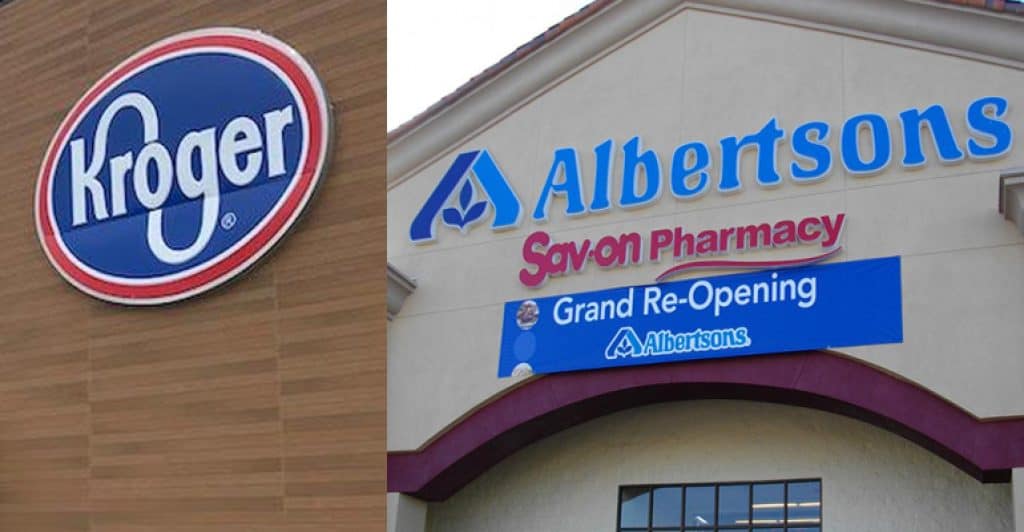
Two grocery stores rivals are coming together.
Kroger and Albertsons announced a merger deal Friday morning worth about $25 billion dollars. They are the parent companies of King Soopers and Safeway, respectively.
Local unions said the merger would be devastating for workers and customers.
In a statement, the president of UFCW Local 7, Kim Cordova said:
“Just as our UFCW workers stood together to negotiate landmark new contracts with both Kroger and Albertsons/Safeway last year across the western US, we will stand united to fight for access to nutritious food, a safe shopping experience, and investments in good jobs in our communities.”
In a statement, Kroger said they plan on investing in lower prices for customers:
“Consistent with prior transactions, Kroger plans to invest in lowering prices for customers and expects to reinvest approximately half a billion dollars of cost savings from synergies to reduce prices for customers.”
Colorado Attorney General Phil Weiser also released a statement saying:
“At a time of rising food prices, the possibility of undue consolidation in the grocery business raises serious concerns particularly since King Soopers and Safeway have a large footprint in Colorado. My department and I will closely monitor and review this proposed merger between Kroger and Albertsons to ensure it does not harm consumers or workers.”
“They [Kroger] will control a higher share of the market,” said Kishore Kulkarni, professor of economics at Metropolitan State University of Denver (MSU).
He said that also means Kroger will have a higher monopoly power.
“Is that good or bad? Well, theory tells us that it can be good because when you have a monopoly power and if you have that large volume to produce, that is what is called economies of scale,” said Kulkarni.
He said that means if a company produces more, the average cost goes down.
“Classic example of this would be, if the two stores are very close to each other, then maybe one truck can just deliver at both stores and you can save some cost,” said Kulkarni. “In that scenario, the prices will go down, consumers will benefit, you and I will be happy to have a monopoly like that.”
He said this scenario could also go the other way, using their monopoly power to raise prices.
“It can be a very bad situation because they have a monopoly power now and they could easily raise the prices and as you and I know, we don’t really have a substitution for that,” said Kulkarni.
He said he’s more worried about general inflation in 2023, which could continue to contribute to the exploding cost of food.
“That kind of worries me and we will probably blame that to the merger but the merger may not be the responsible party for that,” said Kulkarni. “Right now, the scenario is our inflation is really high. Even the costs for King Soopers are going up rather than going down.”
Kulkarni said we can expect to see store closures because businesses don’t typically like to have the same store less than a half a mile a part.
UFCW Local 7 said it represents 17,500 grocery store workers for both King Soopers and Safeway in Colorado and Wyoming.
If approved by regulators, the deal is expected to close in early 2024.